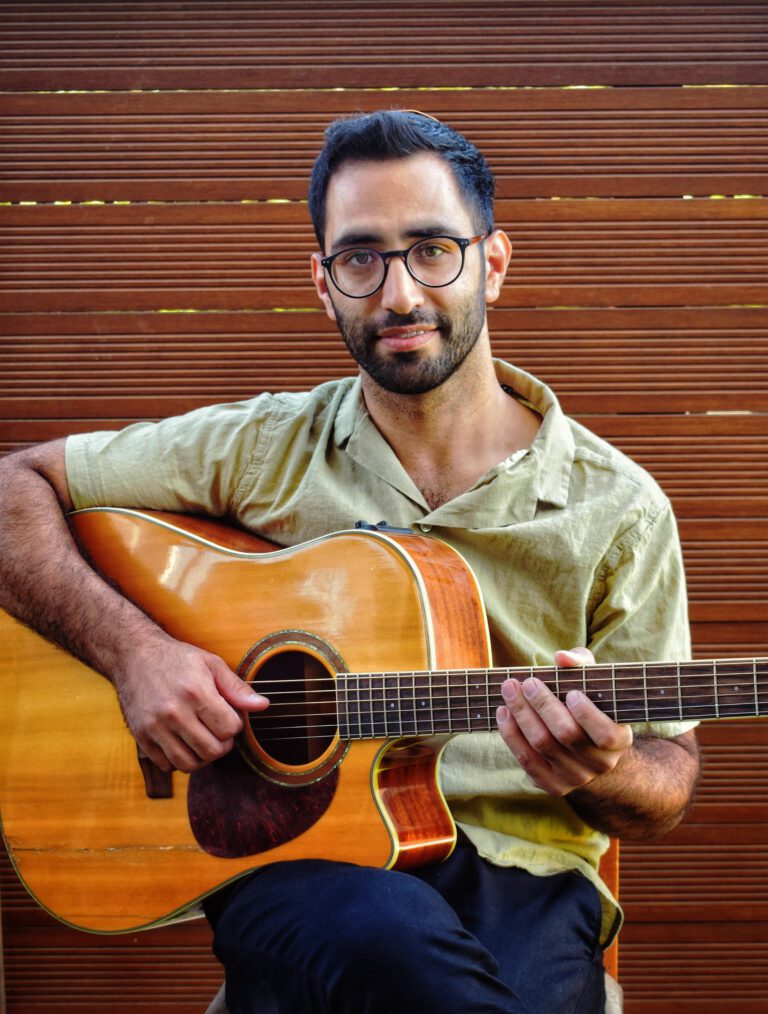The Atanu Ensemble is a unique collective of musicians known for their vocal harmonies. The ensemble consists of seven musicians (playing both modern and ancient instruments) and four singers.
In addition to original compositions, the sources of the ensemble’s repertoire and musical inspiration come from ancient melodies. Their music is a tribute to various musical cultures, including Syria, Egypt, Iran, Iraq, Morocco, Tunisia, Libya and Turkey.
Many of the texts are centuries old and come from the Book of Psalms. Some texts also come from contemporary poetry.
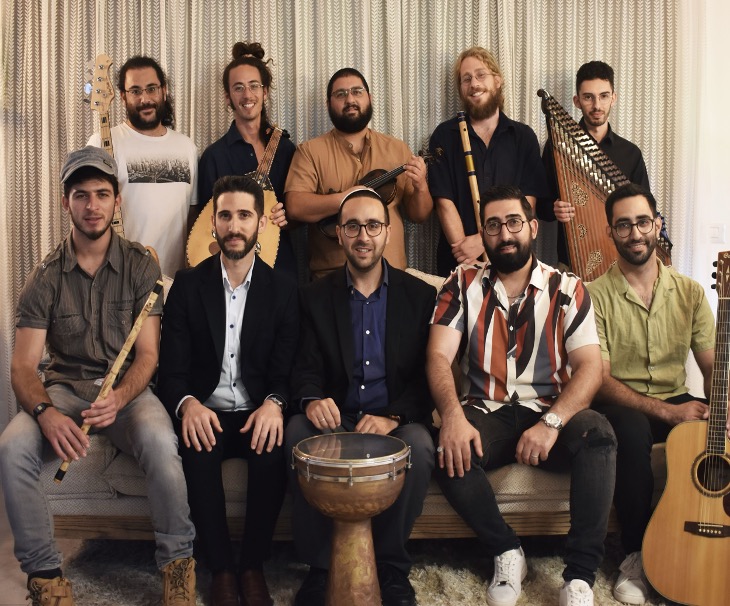
The musicians
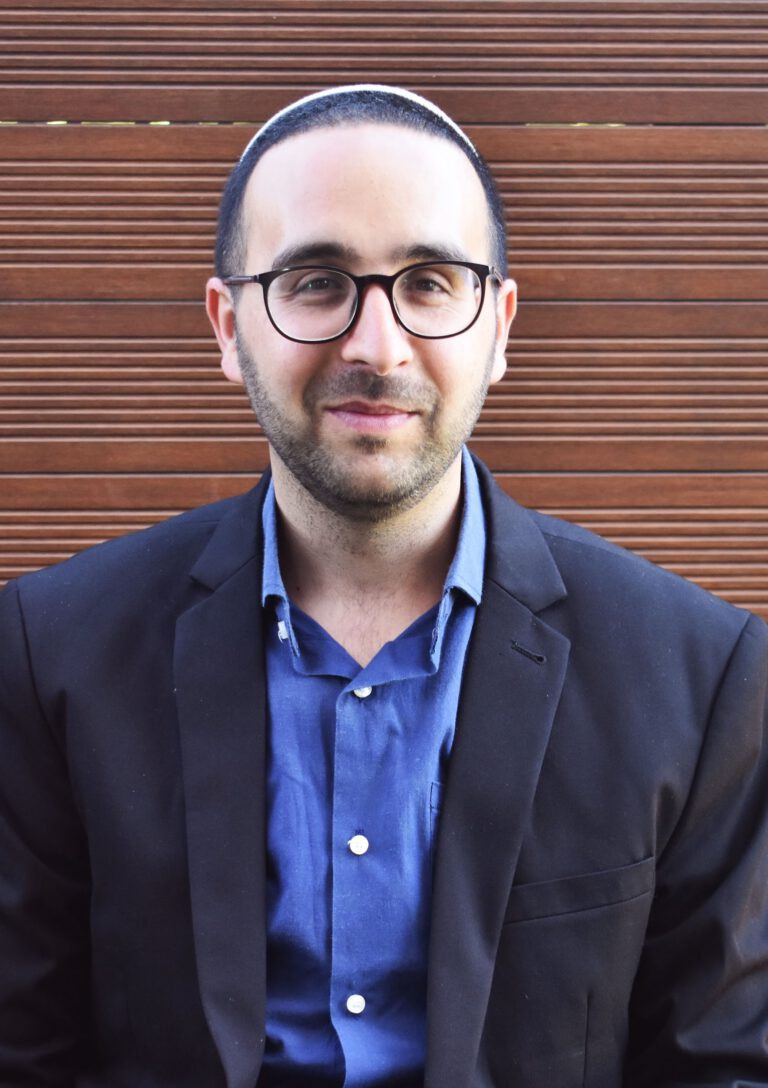
Uziel Sabato
Uziel has been writing and interviewing for various magazines for over a decade and has published more than 1,000 articles.
In addition to his writing activities, he composes and arranges music for the ensemble and is intensively involved in the preservation and communication of Jewish cultural heritage.
As co-founder of the “Hibba Orchestra”, one of Israel’s largest orchestras specializing in Arab music, he has helped to organize hundreds of concerts with well-known Israeli musicians.
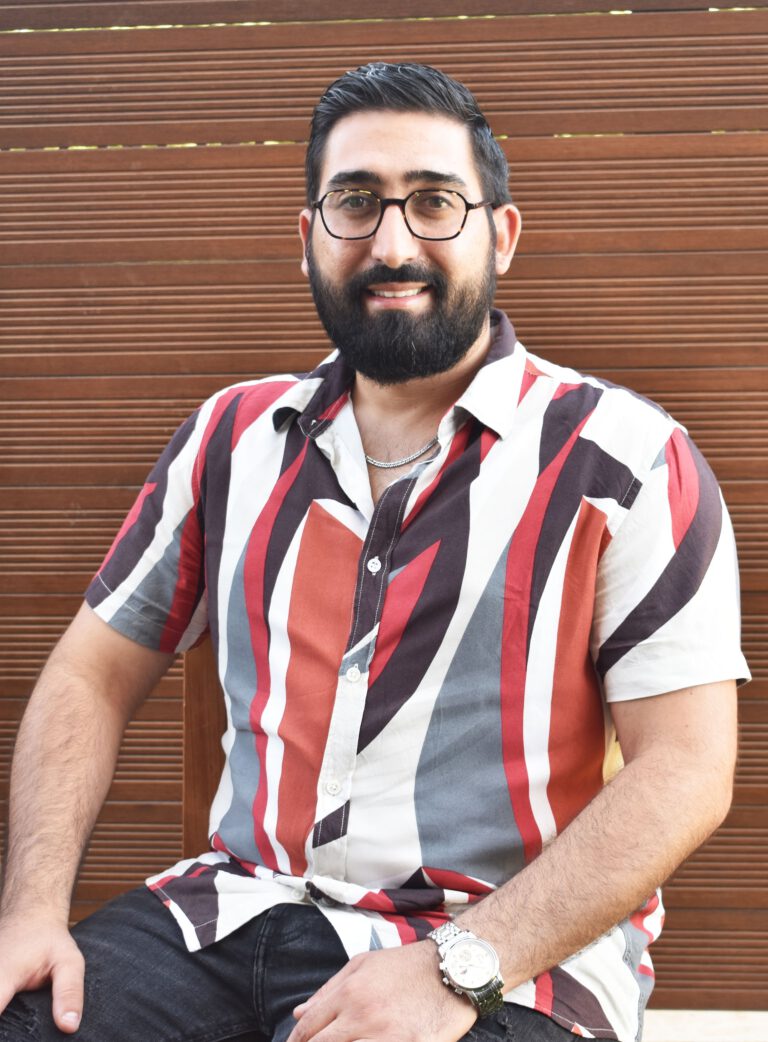
Eliya Gabay
The singer and songwriter, a graduate of the “Mizmor” music school, comes from Ma’alot and now lives in Rehovot.
He served in the military cantor band with well-known singers such as Yishai Ribo and Itzik Dadia as well as the chief cantor Shai Abramson.
With his deep, soulful voice, he was recognized early on as a great talent.
As a soloist with the Andalusian orchestra “Almograbia” and other Andalusian orchestras, he developed his poetry in the modern Andalusian/North African style parallel to his music studies and playing many instruments.
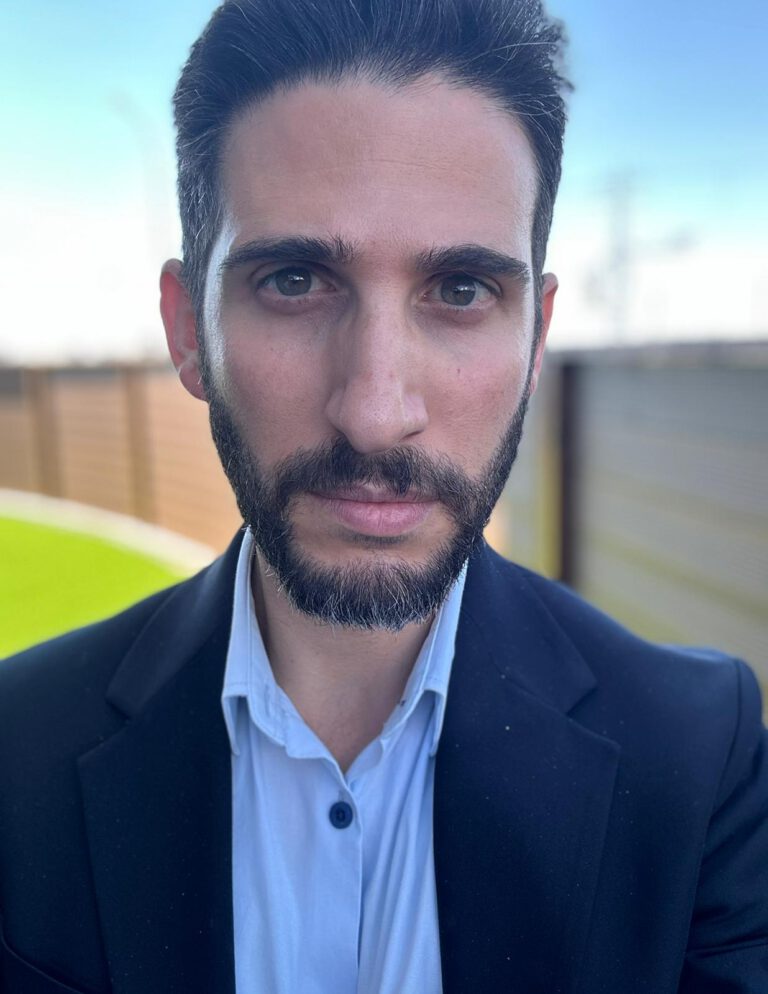
Ariel Cohen
Ariel Cohen is a singer, cantor and composer, born and raised in Jerusalem.
He began singing at an early age and started his musical career in the IDF as a member of the Central Command Show Group.
Ariel has participated in numerous projects in Israel and abroad, including performances for Jewish communities worldwide.
In 2008, he was part of the Israeli delegation at the Eurovision Song Contest in Serbia.
Ariel sings in seven languages and is currently working on his first album.
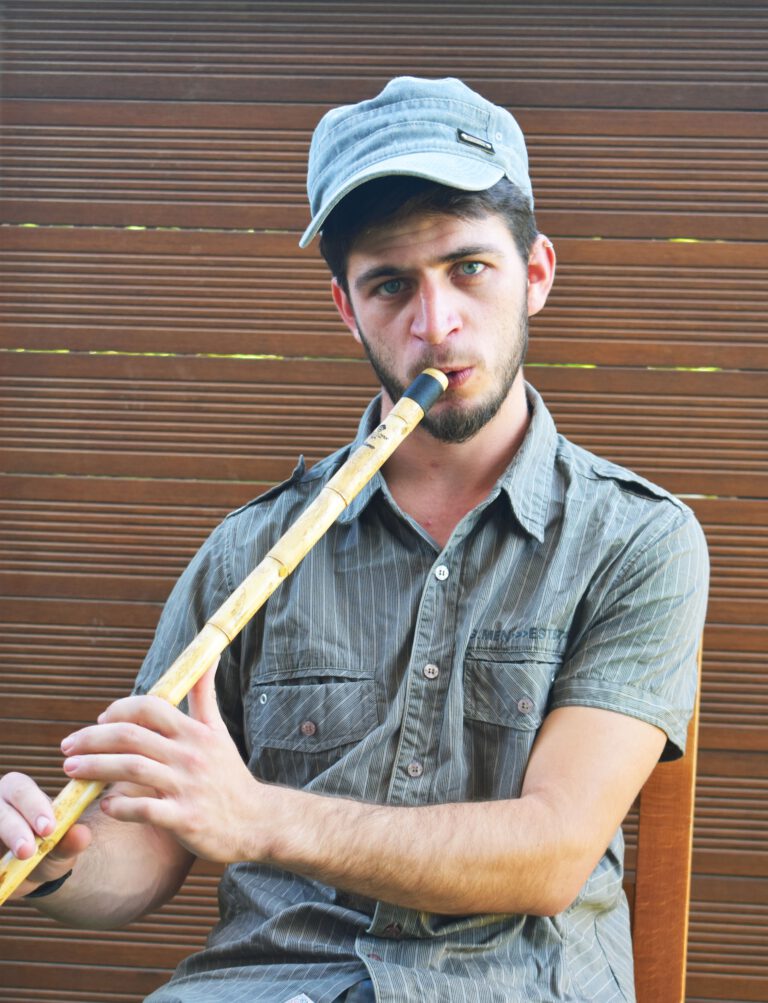
Shlomo Cohen
A singer, cantor and ney player (a flute from the Middle East) of Tunisian origin.
He studied Arabic music and maqam theory in the maqam course of the artist Ziv Yehezkel and ney playing with the musician Shoham Gabai.
He plays in the band Tarab Laneshama as well as in various other ensembles.
For the past eight years, he has devoted himself primarily to classical Arabic music and Jewish music of the Orient.
The ney is probably the oldest instrument in Arabic music.
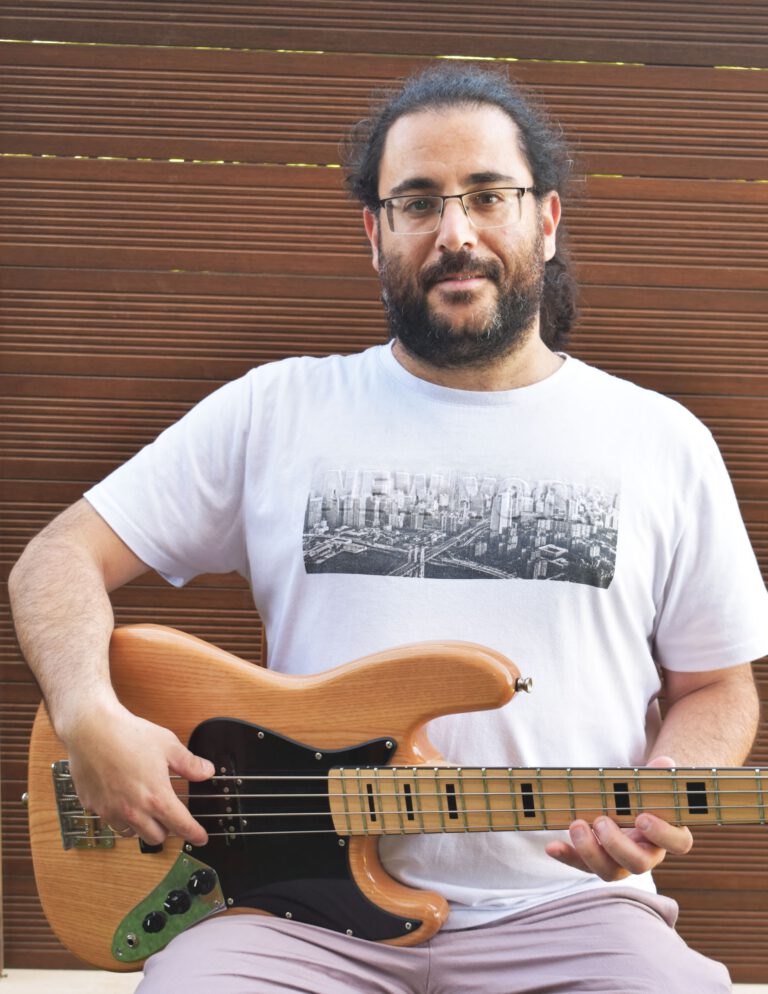
Nevo Castiel
He plays guitar, piano and bass and has experience in several musical styles: Jazz, Andalusian music, Balkan, Ethiopian music, Cuban music, Flamenco, Israeli and Brazilian music.
He has been active for 26 years.
His previous and current projects include Pulkes, Andalucious, Caifas, Karasorchestra, Choro Simbora and Mazal Choro.
In the ensemble “Atanu” he is responsible for bass playing, composition and arrangements.
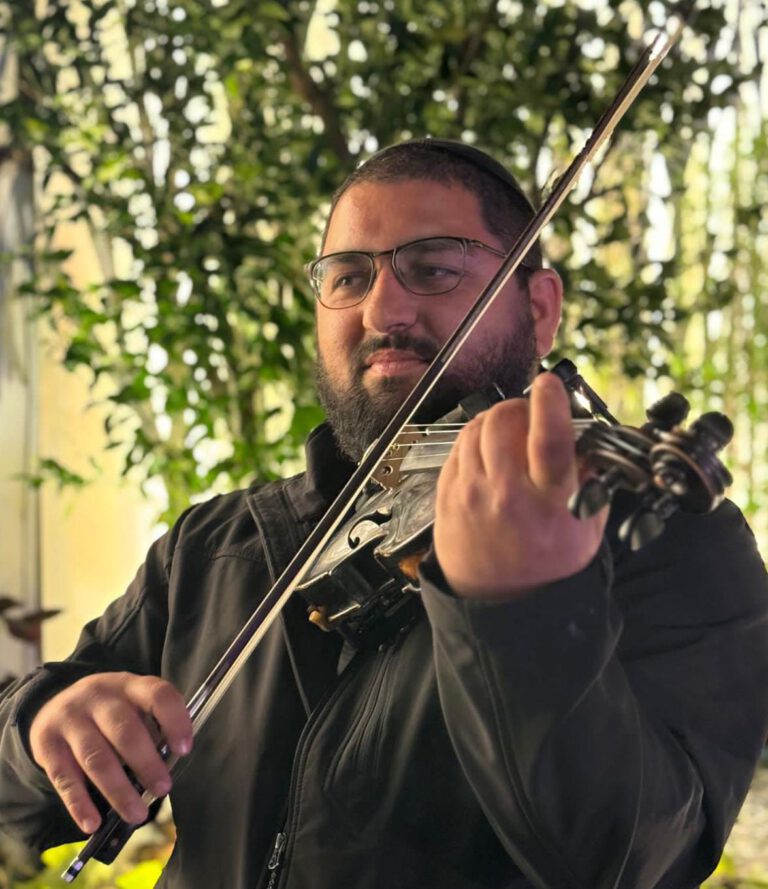
Zion Badi
Zion is a violinist who trained with Morad Salman and graduated from the Kinor David School of Music.
He inspires audiences in Israel and teaches music while participating in various projects and accompanying artists.
He contributes his expertise as arranger and leader of the band “B’Simchot”.
He also owns a recording studio and a sound company.
Zion’s strength lies in Arabic music, but his repertoire encompasses various genres.
His mastery of the eastern violin, which combines western roots with a unique style, makes him special.
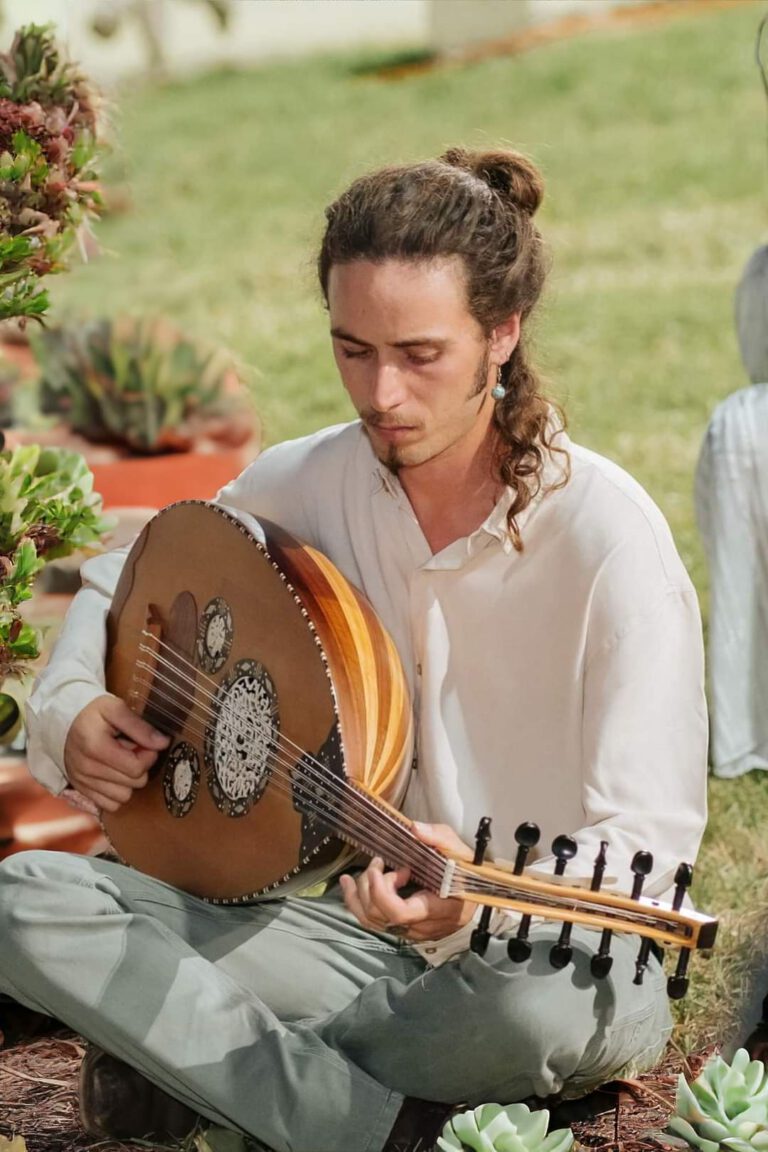
David Cohen
David is a musician and oud player.
The oud is an ancient instrument that is of central importance in North Africa and the Middle East.
It is fretless, which allows for microtonality, a traditional way of playing.
David began playing the oud eight years ago after trying many other instruments.
He studied with renowned musicians such as Yair Dalal, Ziv Yehezkel and Piris Eliyahu.
His playing is based on classical Arabic music and is influenced by jazz, Khaliji and Turkish music.
David currently teaches music, plays in ensembles and is involved in various projects.
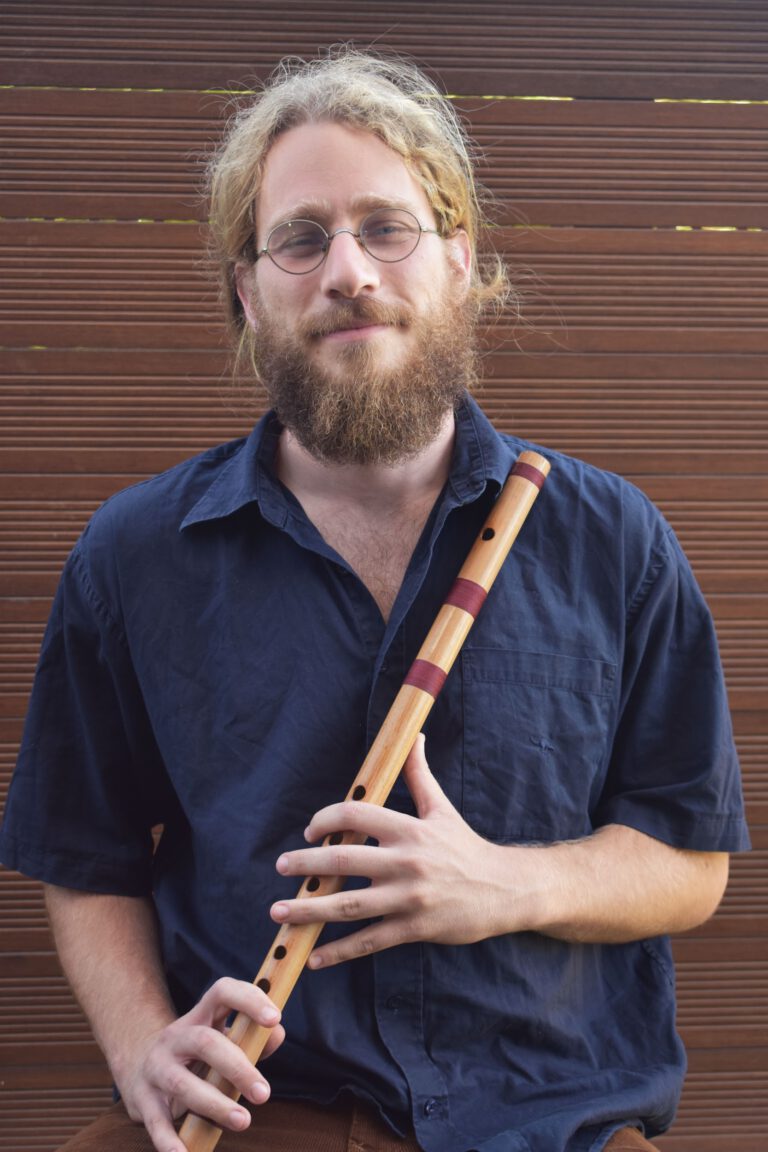
Lihu Baniel
He has been playing the flute since childhood and in recent years has learned bansuri, Turkish and Arabic ney (nai) and Persian qawalla.
He studied ney with master Itamar Shahar and at the Center for Oriental Music in Jerusalem.
He graduated from the jazz department of the Thelma Yellin School of Arts and was taught by Boaz Meirovitch, Ilan Salem and Gilad Ronen.
He immersed himself in the Bansuri flute and North Indian classical music at the Pandit Hariprasad Chaurasia Center in Bhubaneshwar.
He is a member of the ensemble “Tiyul”, accompanies singer-songwriters in shows and recordings and plays in the Hibba Orchestra in Jerusalem.
He researches Turkish, Indian and Arabic Sufi music and its connections to Western music.
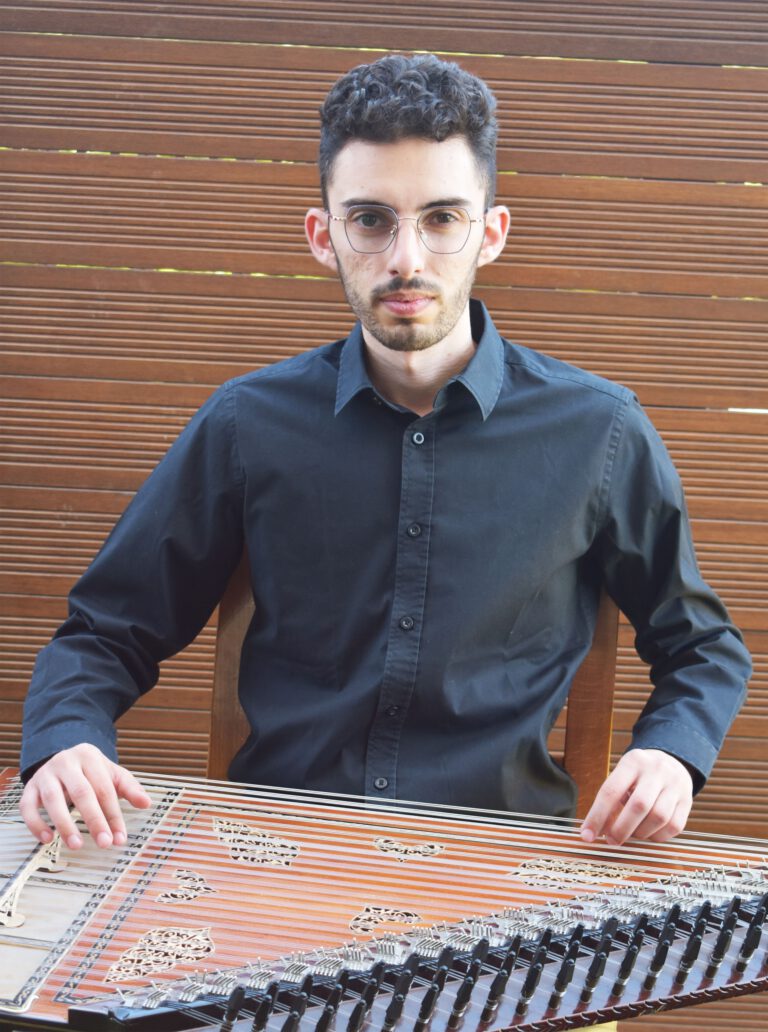
Yitzhak Shukron
He plays kanun and oud and has been active in music for about 10 years.
His journey began with the study of poetry and singing with Rabbi David Edri and in the prayer poetry of Moroccan Jews in Ashdod, before learning oud and kanun.
He specialized in Eastern music at the Maqamat School.
He composes and plays music mainly from Morocco, Egypt, Syria and Lebanon.
The kanun, which plays a central role in Arabic music, is also known as the “piano” of Arabic music, as it includes all the notes found in the tradition.
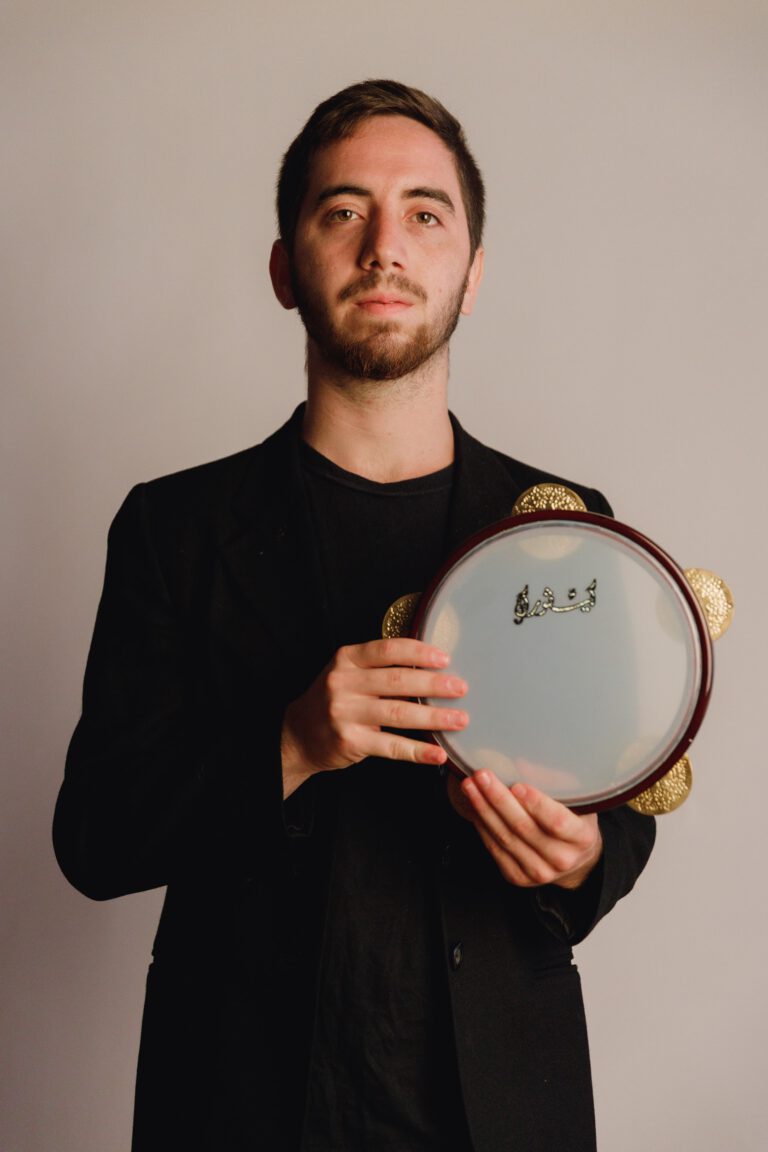
Ariel Smith
He plays various percussion instruments, mainly traditional Mediterranean-oriented ones such as the darbuka and the riq.
Ariel is a member of numerous projects in Israel, including the Piyut Ensemble, Yagel Harush and Ziv Yehzekel.
He is constantly expanding his knowledge of different musical traditions and honing his craft.
His passion for music and his commitment to learning from different masters have made him a versatile performer.
With his unique blend of traditional and modern influences, Ariel brings fresh perspectives to his performances and captivates audiences with his dynamic and expressive playing.
